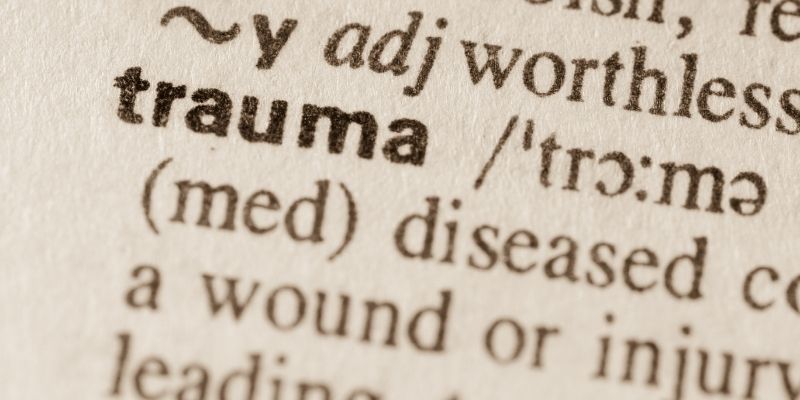Trauma-Informed Care: Why It Matters for Better Health and Healing
Healthcare is increasingly recognizing trauma's impacts. TIC alters how individuals cope with trauma's significant physical, social, and mental health impacts. Changing the emphasis from "What's wrong with you?" to "What happened to you?" TIC helps individuals heal, trust, and recover. This blog article discusses Trauma-Informed Care, its advantages, and how it may improve healthcare.

Trauma Effects on Health
Traumatic events may alter your health. Physical and mental trauma may result from abuse, maltreatment, violence, life issues, and stress. Early stress increases the risk of chronic diseases, mental health issues, and behavioural issues later in life, according to ACEs research. All humans experience trauma. No matter age, ethnicity, gender, or money, it might hide beneath health issues. Trauma left untreated may cause long-term suffering, stress, despair, drug dependence, and unexplained physical problems.
To comprehend stress, consider the mind-body link. Traumatic stress disrupts the neurological system, affecting hormones and the immune system. Unsupported trauma may cause anxiety, heart disease, diabetes, and autoimmune illnesses. Also in danger is your emotional wellness. Mental health, relational, and everyday task concerns may result from trauma. Bad feelings like guilt, blame, and worthlessness make pain worse and healing harder.
Understanding these links helps doctors tackle patients' fundamental issues. Trauma-informed care helps clinicians construct safe environments where patients feel understood and supported, improving therapy and recovery. Fixing the stress that may be producing symptoms is now the priority.
Essentials of Trauma-Informed Care
Understand Trauma-Informed Care fundamentals before continuing. Ideas make helpful healthcare understandable and practical. TIC is safety-based. Patients require comfortable physical and emotional environments in hospitals. This needs spaces where individuals may discuss their issues without judgment. Caring practices and honest discussion reduce concern and improve safety. Patient-provider relationships require honesty and dependability. Being honest, transparent, and consistent fosters trust, which is crucial for lied-to individuals. Patients should see their treatment plans, medical procedures, and objectives to make sensible decisions.
Others assist in healing. Working with trauma survivors may offer them hope. Optimistic peer support reduces stress and fosters community. It also shows how to recover from treatment and resiliency. Cooperation strengthens patient-provider interactions. Instead of giving patients orders, TIC lets them make choices. Making the patient feel heard and respected balances the treatment relationship.
So, TIC cherishes freedom, speech, and power. Patients' freedom and self-efficacy are increased by saying what they desire. This reduces pain-related despondency. Empowering others helps them become strong and ready for future challenges. Cultural, political, and gender issues are considered when providing equal treatment. Acceptance of social injustice, prejudice, and suffering is crucial to therapy. Culturally competent clinicians respect patients' identities and experiences.
Health benefits from trauma-informed treatment.
Knowing Trauma-Informed Care fundamentals and experiencing how it helps individuals prove its health benefits. By addressing the cause, TIC speeds recovery. Patients are more engaged with TIC. Safe, heard, and appreciated persons are more inclined to attend treatment. Therapist-patient communication, trust, and therapy improve. The reason consumers give more health information helps physicians detect and cure issues is obvious.
TIC increases treatment adherence. Knowing how choices and care are planned improves treatment compliance. With TIC, disease treatments are less terrifying and simpler. Working together makes individuals accountable and motivated to improve their health. Natural health improvement is TIC's strategy. Considering stress's physical and emotional repercussions may help doctors develop better therapies. Complete treatment reduces chronic illness risk and improves life quality. Research suggests that trauma-informed techniques reduce ER visits and hospital stays, lowering healthcare costs.
Healthcare workers benefit from TIC. Trauma-informed workplaces ease stress, prevent burnout, and foster empathy. Employees who get assistance perform better. This supportive environment may make staff happy and less inclined to quit, improving healthcare.

Trauma-informed daily care
Implementing Trauma-Informed Care in healthcare demands systemic changes and much labour. Service conduct creates a safe, understanding, and respectful workplace. There must be training. Health professionals must understand trauma, TIC, and their usage. Adjustments and reviews should accompany this instruction. Workshops, role-playing, and continuous training may help workers grasp and implement TIC concepts.
Safeguard your location. Also included are patient privacy and safety measures and attractive, comfortable spaces. Changes in illumination, noise, or private spaces may significantly impact. Respectful and open signage and materials may promote welcome. Check policies and processes for TIC compliance. Organizational process modifications should be trauma-informed. Explored patient concerns, private data, and stressors.
Patient participation in care planning is crucial. Doctors should aggressively seek patient input and consideration. We empower individuals and enhance individualized care with our relationship. Patient feedback and suggestion boards may improve trauma-informed treatment. Staff assistance and self-care are crucial. Companies must realize that traumatized staff may be emotional. Stress and compassion fatigue may be reduced with tools, social support, and introspection. Regular check-ins, open communication, and mental health tools make a healthy workplace.
The Meaning and Future of Trauma-Informed Care
The future of health care may be trauma-informed. Systems may benefit from thorough knowledge, sensitivity, and repair from TIC. Schools, companies, neighbourhoods, and social organizations may aid TIC patients. Society may change if many systems adopt trauma-informed thinking. Students may succeed in trauma-informed schools' safe, supportive, and adaptive learning environments.
Company use of TIC increases due to its benefits study. TIC's long-term effects on health, worker well-being, and system performance are studied. Effective trauma-informed companies and methods support this approach. Awareness and support are key to TIC marketing. As more individuals learn about trauma-informed treatment, legislation and finances increase. Professional, government and local organizations may contribute to TIC.
Trauma-informed care increases fairness, effectiveness, and compassion in healthcare. TIC addresses stress to boost health, healing, and resilience. Trauma-informed care helps us develop a healthcare system that addresses symptoms locally and promotes recovery and well-being. Comprehensive strategies may make individuals, communities, and society more fair and sympathetic.
Conclusion
Beyond health, stress-informed care helps us understand and treat stress victims. TIC's safe, compassionate, and courteous environment promotes healing and wellness. This strategy understands the complex relationship between stress and health and seeks to resolve a patient's discomfort. Health care and trauma-informed community programs will be affected. Happy physicians and nurses will improve healthcare, and society will benefit from healthier, stronger individuals. Every day, Trauma-Informed Care works. It represents healing, understanding, and care for everyone's story. We may receive complete, fair, patient-centered healthcare using TIC.












